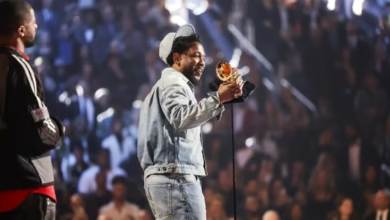
Nigeria Bids Farewell to a Silent Statesman — Major General Abdullahi Mohammed (Rtd)
Inna Lillahi wa Inna Ilayhi Raj’un.
Nigeria mourns the passing of one of its most loyal and self-effacing patriots, Major General Abdullahi Mohammed (Rtd), fondly known as Adangba — a man whose decades of service to the nation spanned the military and democratic eras, yet whose humility often kept him away from the public glare.
Born in 1939, the late General Abdullahi Mohammed died at the age of 86 in the early hours of Wednesday, November 5, 2025. His death closes a distinguished chapter in Nigeria’s civil-military history a chapter defined by integrity, discipline, and commitment to national unity.
Major General Mohammed’s record of service is one that very few Nigerians can match. From the barracks to the State House, he served under several administrations, consistently earning trust and respect across political divides.
He was Governor of the former Benue-Plateau State between July 1975 and February 1976, where his tenure was marked by stability and administrative innovation. His strategic acumen later saw him appointed Director General of the National Security Organization (NSO) between 1976 and 1979 under the military administration of General Olusegun Obasanjo.
At the return of democracy, Abdullahi Mohammed was called once more to national duty — serving as Chief of Staff to President Olusegun Obasanjo (1999–2007) and continuing briefly in the same role under the late President Umaru Musa Yar’Adua (2007–2008). Before that, he had also been the National Security Adviser to General Abdulsalami Abubakar (1998–1999), playing a pivotal role in Nigeria’s transition from military to civilian rule.
Those who worked with him often described Abdullahi Mohammed as the “steady hand” in turbulent times calm, calculating, and always guided by principle rather than politics. His ability to maintain institutional continuity between two administrations of contrasting temperaments remains a rare feat in Nigeria’s political history.
He neither courted the limelight nor sought controversy. Yet, behind the scenes, his advice, discretion, and sense of duty shaped critical decisions that strengthened the Nigerian state. He was, in every sense, a quiet power broker one who believed service was sacred, not self-serving.
Major General Mohammed embodied the disciplined ethos of the old military tradition duty before self, service before ambition. His humility and detachment from material pursuit distinguished him in an era when power was often a means of personal gain.
He will be remembered by his contemporaries as a mentor to younger officers, a stabilizing force in governance, and a bridge between Nigeria’s military and civilian leadership.
As his family, the people of Kwara State, and the entire nation mourn, Nigeria reflects on the values he represented integrity, patriotism, and loyalty to the Nigerian project. In a time when public service has become transactional, the life of Abdullahi Mohammed stands as a reminder that quiet service can sometimes speak louder than rhetoric.
May Almighty Allah forgive his shortcomings, have mercy on his soul, and grant him eternal rest in Al-Jannat Firdaus.





















